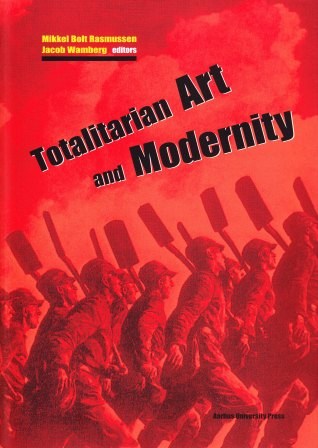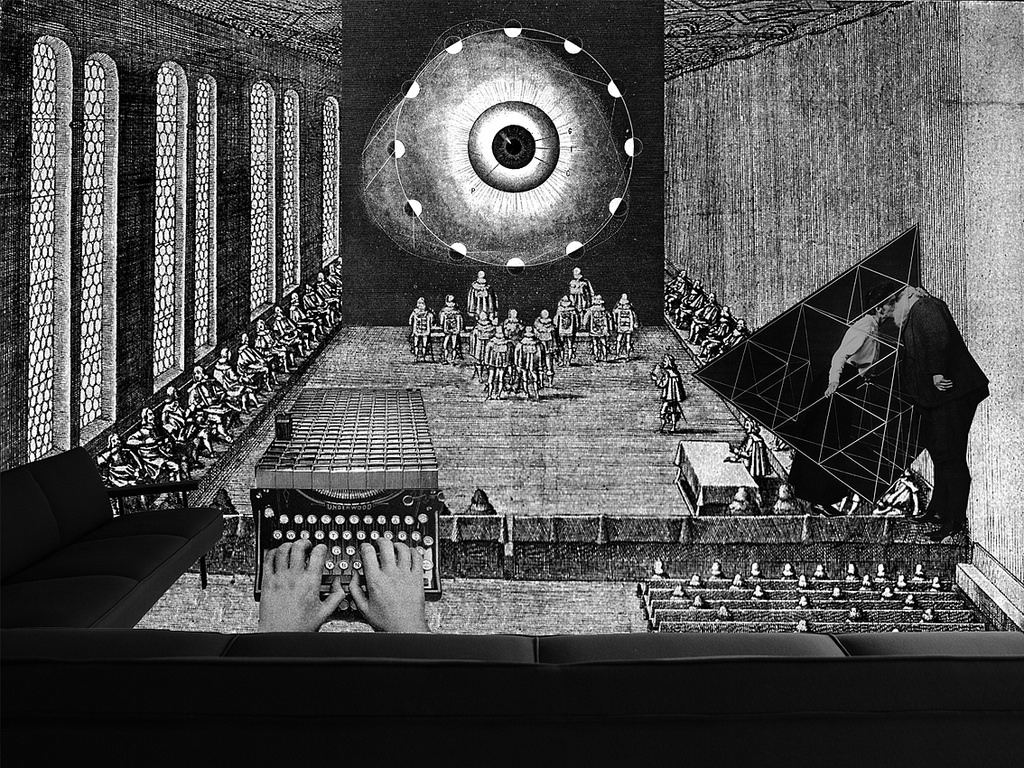Mikkel Bolt Rasmussen, Jacob Wamberg (eds.): Totalitarian Art and Modernity (2010)
Filed under book | Tags: · art history, avant-garde, capitalism, communism, democracy, fascism, labour, modernism, modernity, monument, mythology, nazism, politics, revolution, socialism, socialist realism, soviet union, technology, totalitarianism, war

“In spite of the steadily expanding concept of art in the Western world, art made in twentieth-century totalitarian regimes – notably Nazi Germany, fascist Italy and the communist East Bloc countries – is still to a surprising degree excluded from mainstream art history and the exhibits of art museums. In contrast to earlier art made to promote princely or ecclesiastical power, this kind of visual culture seems to somehow not fulfill the category of ‘true’ art, instead being marginalised as propaganda for politically suspect regimes.
Totalitarian Art and Modernity wants to modify this displacement, comparing totalitarian art with modernist and avant-garde movements; confronting their cultural and political embeddings; and writing forth their common generalogies. Its eleven articles include topics as varied as: the concept of totalitarianism and totalitarian art, totalitarian exhibitions, monuments and architecture, forerunners of totalitarian art in romanticism and heroic realism, and diverse receptions of totalitarian art in democratic cultures.”
With contributions by Mikkel Bolt, Sandra Esslinger, Jørn Guldberg, Paul Jaskot, Jacob Wamberg, Christina Kiaer, Anders V. Munch, Kristine Nielsen, Olaf Peters, K. Andrea Rusnock, and Marla Stone.
Publisher Aarhus University Press, Århus, 2010
Acta Jutlandica series, 9
ISBN 8779345603, 9788779345607
359 pages
via Mikkel Bolt
PDF (10 MB)
Comment (0)Continent. 5(2): The Technosphere, Now (2016)
Filed under journal | Tags: · agency, anthropocene, biopshere, body, complexity, earth, ecology, food, human, infrastructure, media, nature, production, systems theory, technology, technosphere, waste, water

“The “technosphere” is geologist Peter Haff’s term for the planetary-scale networks of transport, information, energy and media operating at a scale and functional efficacy that we can now compare with geological and climatic forces—the soils and rocks of the lithosphere, the waters of the hydrosphere or the winds of the atmosphere. Its emergence as a thematic is driven by the same witnessing of intertwining natural environments, vast socio-technical forces, and increasingly diverse technological species and spaces that has precipitated discussions of the Anthropocene.
[…] The Technosphere project at the HKW in Berlin (2015-18) began with an initial gathering in Autumn 2015. The first occasion for the ongoing collaboration between continent. and HKW was the latter’s hosting of The Technosphere, Now event in October, 2015 in Berlin. Editors from continent. came from various corners of the globe, invited to immerse themselves into and extrapolate from the talks, discussions, presentations and demonstrations held there. Interview-discussions held with the likewise international set of researchers, theorists, artists and scientists at this event precipitated an online special issue of continent. for April 2016, featuring articles titled by the names of our interviewees.”
Features interviews with Arno Rosemarin, Birgit Schneider, Bronislaw Szerszynski, Donald MacKenzie, Erich Hörl, Jennifer Gabrys, Lino Camprubí, Lucy A. Suchman, Mark Hansen, Masahiro Terada, Mushon Zer-Aviv, Oliver Sann, Peter K. Haff, S. Løchlann Jain, and Scott Gabriel Knowles.
Edited by Nina Jäger, Paul Boshears, Bernhard Garnicnig, Jamie Allen, Lital Khaikin, Katrin Klingan, Anna Sophie Luhn, Christoph Rosol, and Nick Hood
Publisher continent., Apr 2016
Creative Commons Attribution 3.0 License
ISSN 2159-9920
Journal of Peer Production, 8: Feminism and (Un)Hacking (2016)
Filed under journal | Tags: · feminism, gender, hacker culture, hacking, maker culture, technology
 |
“This special issue of the journal shows a growing body of work that brings together feminism with hacking and making. The growth of internet technologies and the pervasion of computer culture into everyday life has prompted a renewed interrogation of the gender limits within these information technologies and digital media. From the shiny glass screens on our mobile devices to the sprawling campuses of technology corporations, gendered configurations of power within technoculture have become the focus of attention in popular culture, media, and academic scholarship.” (from the Introduction)
Edited by Shaowen Bardzell, Lilly Nguyen, and Sophie Toupin (a.k.a. SSL Nagbot)
Published March 2016
Open access
ISSN 2213-5316

